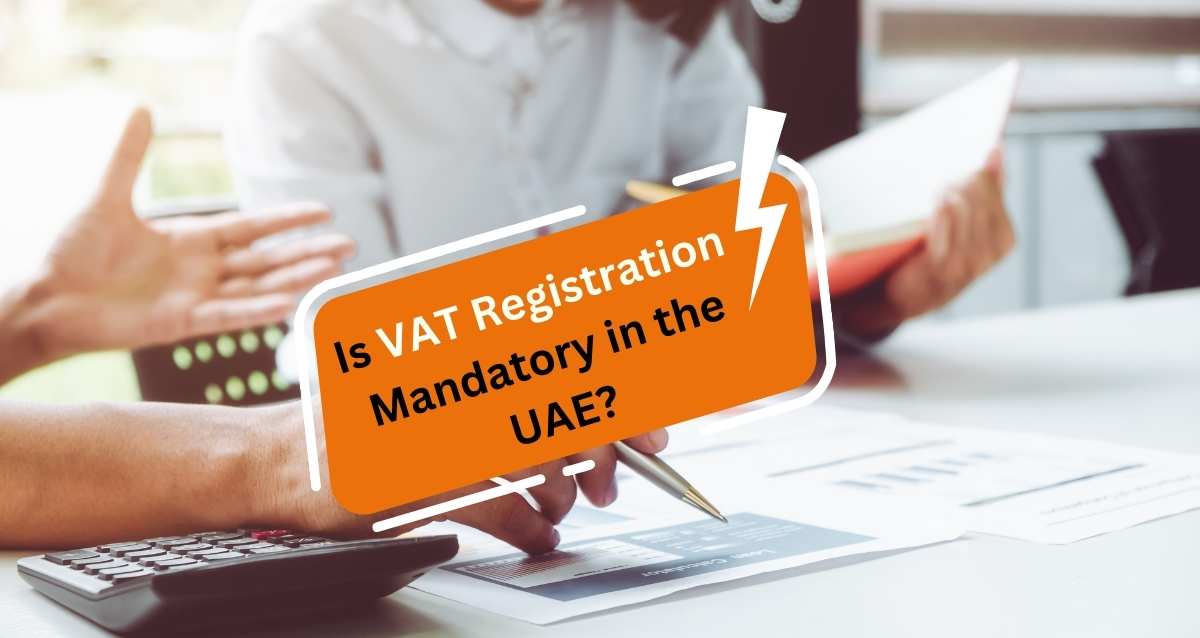Introduction
The UAE has established itself as a global hub for trade, investment, and entrepreneurship. To maintain a transparent tax system and align with international standards, the government introduced Value Added Tax (VAT) in 2018. Since then, VAT registration in the UAE has become a critical compliance requirement for businesses. However, companies often face confusion when distinguishing between mandatory VAT registration and voluntary VAT registration.
With 2025 marking updated thresholds and compliance standards, understanding the rules is more important than ever. This article serves as a detailed VAT registration guide UAE, helping businesses determine whether they fall under mandatory registration or can opt for voluntary registration, while ensuring they remain compliant with the Federal Tax Authority (FTA).
Understanding VAT in the UAE
Value Added Tax (VAT) is an indirect tax levied on the consumption of goods and services. In the UAE, the standard VAT rate is 5 percent. Businesses act as tax collectors, charging VAT to customers and remitting it to the FTA.
VAT not only contributes to government revenue but also fosters accountability and transparency within the business ecosystem. To comply, companies must maintain accurate records, file returns periodically, and ensure correct VAT registration.
The decision between mandatory VAT registration UAE and voluntary VAT registration UAE depends on revenue thresholds and specific business circumstances, which we explore in detail below.
Mandatory VAT Registration in the UAE
Thresholds for Mandatory Registration
Businesses are required to register for VAT if their taxable supplies and imports exceed AED 375,000 over the previous 12 months or are expected to exceed this limit in the next 30 days.
This threshold is set to capture medium and large enterprises, ensuring that entities generating significant revenue contribute fairly to the VAT system.
Key Requirements for Mandatory Registration
- Application Submission: Register via the FTA online portal with a valid trade license, Emirates ID of shareholders, and financial records.
- Tax Invoices: Businesses must issue VAT-compliant invoices.
- Record-Keeping: Maintain VAT records for at least five years.
- Return Filing: Submit VAT returns quarterly or monthly, depending on the company’s size and structure.
Failing to register when required can lead to penalties, fines, and legal consequences.
Voluntary VAT Registration in UAE
Thresholds for Voluntary Registration
If a business’s taxable supplies and imports exceed AED 187,500 but are below AED 375,000, it may choose to register voluntarily.
This option benefits startups and SMEs aiming to establish credibility, recover input VAT, and position themselves competitively in the market.
Benefits of Voluntary Registration
- Recover Input VAT: Businesses can claim back VAT on eligible expenses.
- Boost Market Credibility: Registration signals professionalism and compliance.
- Smooth Growth Transition: Early registration helps businesses adjust to compliance before reaching mandatory thresholds.
For smaller enterprises, voluntary VAT registration UAE can be a strategic move rather than just a compliance step.
VAT Thresholds and Compliance in 2025
With 2025, the FTA has emphasized stricter monitoring, digital filing systems, and penalties for late or inaccurate submissions. While the AED 375,000 and AED 187,500 thresholds remain, businesses must now demonstrate robust documentation and reporting capabilities.
Key compliance updates for 2025 include:
- More frequent digital audits by the FTA.
- Mandatory use of e-invoicing for registered businesses.
- Increased scrutiny of refund claims.
- Stronger enforcement of penalties for non-compliance.
These changes highlight the need for a reliable VAT registration guide UAE, ensuring businesses adapt quickly and avoid financial setbacks.
Common Mistakes Businesses Make in VAT Registration
- Delaying Registration: Waiting until the last moment often results in penalties.
- Incorrect Threshold Calculations: Not factoring in imports or exempt supplies.
- Incomplete Documentation: Missing trade licenses or financial records during registration.
- Improper Record-Keeping: Failure to store invoices, ledgers, and returns for audit purposes.
By following a structured approach through a VAT registration guide UAE, companies can avoid these errors.
Step-by-Step VAT Registration Guide UAE
To simplify the process, here is a clear step-by-step breakdown:
- Assess Eligibility: Calculate taxable supplies and imports to determine if you meet the voluntary or mandatory threshold.
- Prepare Documentation: Gather your trade license, owner identification documents, bank account details, and financial statements.
- Register Online: Log in to the FTA e-services portal and submit your application.
- Receive TRN (Tax Registration Number): Upon approval, you will receive a TRN, which must be displayed on all invoices.
- Begin Compliance: Charge VAT on invoices, maintain records, and file returns as required.
This structured VAT registration guide UAE ensures businesses understand both compliance obligations and strategic benefits.
Strategic Value of Early VAT Compliance
VAT registration is not just a regulatory hurdle; it can be leveraged for business growth. Companies that comply proactively benefit from:
- Reputation Building: Enhances trust with partners and clients.
- Financial Accuracy: Improves record-keeping and long-term planning.
- Competitive Edge: Demonstrates commitment to global business standards.
For entrepreneurs planning long-term expansion, early adherence to VAT regulations is part of a smart financial strategy.
Why Professional Support Matters
Navigating VAT rules, thresholds, and compliance can overwhelm business owners, especially startups. Professional advisory services can help by:
- Evaluating whether a company should opt for mandatory VAT registration UAE or voluntary VAT registration UAE.
- Guiding through the VAT registration guide UAE with step-by-step compliance support.
- Preparing businesses for audits and ensuring accurate record-keeping.
With VAT rules evolving in 2025, expert guidance becomes even more valuable.
Conclusion
VAT registration is a critical step for businesses in the UAE, and the choice between mandatory VAT registration UAE and voluntary VAT registration UAE depends on revenue thresholds and growth objectives. With updated thresholds and stricter enforcement in 2025, every company must prepare a clear compliance plan.
A structured VAT registration guide UAE not only ensures compliance but also positions businesses for long-term growth by enhancing financial transparency and credibility. By adopting the right strategy, companies can transform VAT from a compliance burden into a competitive advantage.
For tailored VAT support, compliance advisory, and expert guidance on business setup in the UAE, visit Dubai Business & Tax Advisors today.









